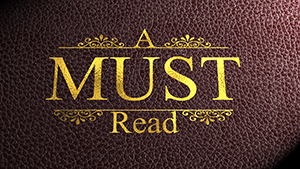Veronica Roth’s ‘Insurgent (Divergent Series #2)’
 It’s time for a much-requested review (most likely due to one of the movies having come out not long ago): Veronica Roth’s Insurgent (Divergent Series #2). If you read my review of Divergent a handful of weeks ago, then you might remember that I wasn’t exactly in love with the series. Apparently, this makes me an alien to a great deal of teen and early-mid 20s readers. Thankfully, authors are people, and people learn and grow. So, how does book 2 stack up to the first?
It’s time for a much-requested review (most likely due to one of the movies having come out not long ago): Veronica Roth’s Insurgent (Divergent Series #2). If you read my review of Divergent a handful of weeks ago, then you might remember that I wasn’t exactly in love with the series. Apparently, this makes me an alien to a great deal of teen and early-mid 20s readers. Thankfully, authors are people, and people learn and grow. So, how does book 2 stack up to the first?
First, a little plot context. If you haven’t read the first one…don’t start here! With the battles between factions escalating, Tris, Four, Caleb, Peter, and Marcus all travel to Amity. Amity states that all factions may find sanctuary there, so long as the factions live in peace. Of course, peace lasts all of five minutes. With traitors from the various factions pouring in, our protagonists find themselves pulled deeper into the faction of…the factionless (I’ll get to that little issue in a moment). Nonetheless, the stakes are quickly raised: Tris is not in training anymore. People are dying, violence is escalating, and the safe zone is quickly becoming very unsafe. Tris will have to somehow survive the ensuing chaos, all while discovering who, if anyone, she can really trust in such a bleak world.
Now, I can answer my question from above: “yes,” this book is better than the original. The action feels much more realistic, the character development is a little more mature, and the overall plot direction, especially the ending, is well laid out. The characters of Tris and Four feel much more believable this time around. Tris is dealing with grief, and Four has some personal issues of his own that conflict with what he desires (don’t wanna spoil who those issues are with). The action is significantly improved. For most of the first entry, Tris was just training. Nothing felt all that dangerous, so long as she kept her head low. Now, everything has hit the fan and conflict is definitely brewing, a fact that the ending shows perfectly. Unfortunately, the world itself, while imaginative, feels a little hard to believe. The best dystopias are utterly believable, and this just isn’t. The faction system is a stretch, but the fact that the various factions are so pervasive and influential makes no sense. You’d think there would be centralized authority consisting of factionless to keep segmented workers in line. The factionless in this novel have, somehow, defied their label entirely and created a resistance faction. I get what Roth is going for, but it is just lazy to refer to them as the factionless. Lastly, despite the step up in character development, there are still some problems with the characters that persist since their inception. For example, in a world where resistors to the faction system are hunted down and killed, who in their right mind would get a tattoo stating that they are, in fact, one of those traitors? The romance still feels forced. Now that we have had two books to establish it, the whole Tris and Four thing feels a little better, but it was still unnecessary. Roth was clearly trying to make even more of a grab towards the female teenage readers. So, is it better? Significantly. Is it the next Harry Potter like every teen-audience film since Twilight wants to be? Not at all. The book is good, but it has a long way to go to meet that quality of writing (even though the earlier books weren’t always the best written, either). Luckily, Roth has delivered a noticeable improvement to her series and still has an entry left to, hopefully, improve even more next time.











